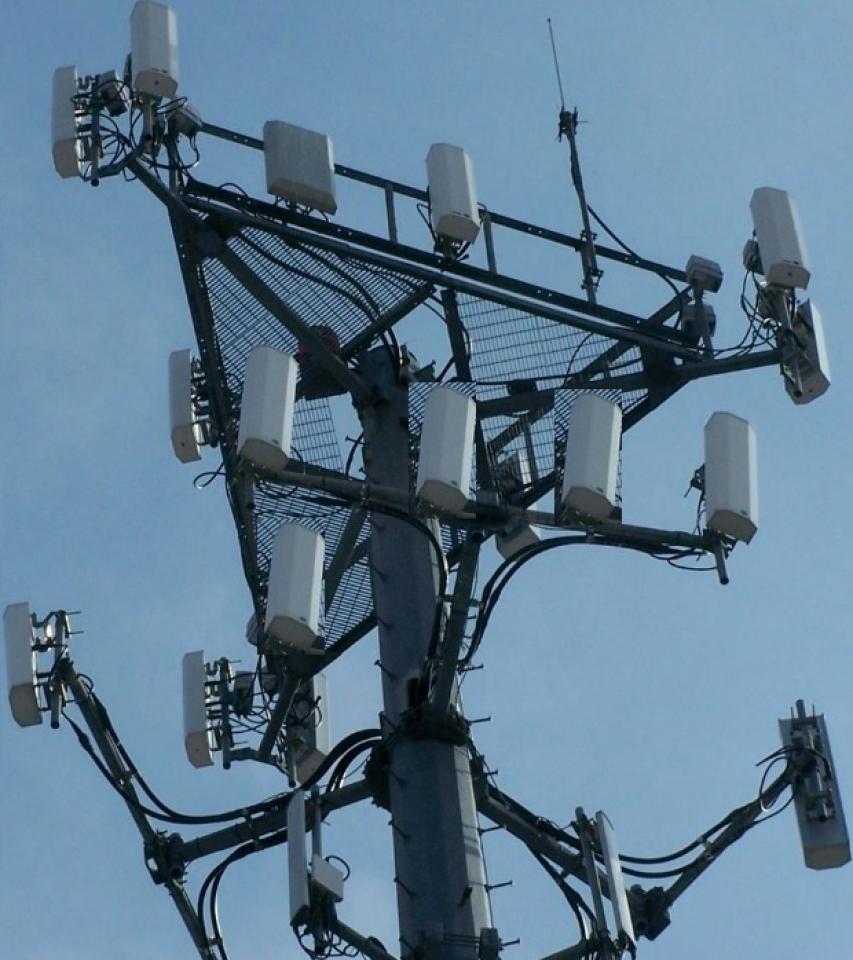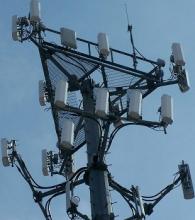
Last week, House Republicans introduced a bill package ostensibly to promote broadband expansion and competition across the country. In reality, the legislation is a wish list of monopoly cable and telephone companies that will protect them from competition and decrease their accountability to the public. It would also ban communities from building their own networks or engaging in public-private partnerships.
A Rights of Way Free-for-All
About a third of the bills in the Boosting Broadband Connectivity Agenda would preempt regulations (including application timelines and fee schedules) set by government subdivisions on wireless deployment. The major mobile carriers are already in the process of slowly rolling out 5G networks which will require the installation of hundreds of thousands of small-cell sites over the next several years. AT&T spent more than $23 billion on the recently concluded 3.7 GHz C-band auction, with T-Mobile spending $9.3 billion. Verizon outspent every other bidder combined at $45 billion. Establishing shorter shot clocks and maximum fees for the installation of new hardware in public Rights of Way would simultaneously reduce the income municipalities receive and lead to the proliferation of poles and attachments across the country with limited public input. We’ve already seen how it has negatively impacted cities like Milwaukee and Tucson.

Another handful of bills in the package would remove environmental or historic preservation regulations for wireless and wireless providers. If passed, they would exempt from review new or replacement facilities installed in public Rights of Way and those less than 50 feet tall (or ten feet taller than surrounding buildings), as well as remove protections so that telecommunications facilities can be installed on federal lands.
While updating Right of Way regulations around the county would be helpful in speeding up and increasing efficiencies for both wireline and wireless infrastructure, it is not the singular solution to the rural broadband gap. Further, removing regulation from the equation doesn’t necessarily fix the urban gap either. We heard from Santa Cruz, California after it streamlined the process for AT&T that the provider simply cherry-picked a handful of neighborhoods where it was likely to see the highest margins and upgraded those users, leaving the bulk of the city’s neighborhoods behind.
We believe that there are areas of concern in some states and some communities that do drive the costs of deployment up unnecessarily, but these issues are not the bottleneck to better Internet access and should be dealt with locally, not via a one-size-fits-all approach.
Nationwide Ban on Municipal Broadband
Tucked among them all is the CONNECT Act (Communities Overregulating Networks Need Economic Competition Today) [pdf]. It seeks to preempt local governments from “provid[ing] or offer[ing] for sale to the public, a telecommunications provider, or to a commercial provider of broadband Internet access service, retail or wholesale broadband Internet access service.” Only in places where there are no private providers (read: nowhere) could new networks form. The legislation would likewise prevent any expansion by existing publicly owned broadband infrastructure, including municipal networks, outside of their current legal boundaries.
Whether this bill is the result of willful ignorance or another example of bad-faith rhetoric, it doesn’t much matter. The Connect Act — and bill package generally — has little chance of passing the House. Democrats there are ramping up to reintroduce a revised version of the Affordable, Accessible Internet for All Act, which (as it was introduced last spring) would have eliminated state laws which preempt local governments from building and operating their own broadband networks. (It would also require the FCC to collect broadband pricing information, which angers the big broadband monopolies and, according to an anonymous Democratic staffer in Politico, may be too controversial for Democrats in Congress.)

Internet access has become the watchword of the pandemic over the last twelve months, and solving the digital divide is an overwhelmingly bipartisan issue at the local and state level. Earlier this month the Republican-dominated state legislature in Arkansas took an important step by removing most of the restrictions on municipally owned broadband.
Municipal networks like those in Chattanooga, Tennessee and Wilson, North Carolina put to lie the claim that local governments can’t build and operate first-class information infrastructure. These networks deliver high-quality, affordable Internet access to communities of all sizes. The big monopoly ISPs have left huge gaps all over the country as they prioritize investment based on returning short-term profits that extract wealth from communities. Press coverage of the bill the Connect Act has pointed out its preposterousness. In an email to Ars Technica Jim Baller called it “utterly absurd,” adding:
In the face of compelling pandemic-driven evidence that affordable broadband Internet access is essential to modern life, that tens of millions of Americans are being left behind, and that an emergency requiring immediate action exists, five enlightened Arkansas Republicans recently persuaded their overwhelmingly Republican legislature to vote unanimously to give local governments significant new authority to provide or support the provision of broadband Internet access. Now, taking exactly the opposite approach in the US Congress, the Republicans on the House Energy and Commerce Committee have just introduced a bill that would all but extinguish public broadband initiatives and public-private broadband partnerships nationwide.
Read about the current status of broadband preemption here, or check out our fact sheets on the benefits and value of municipal broadband for more.









